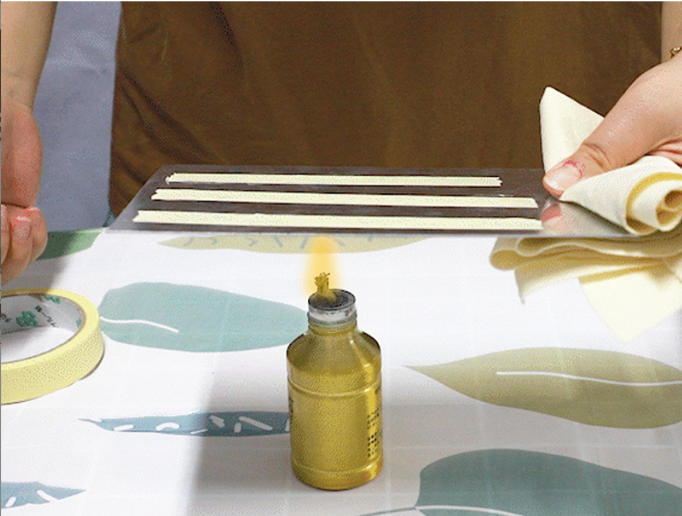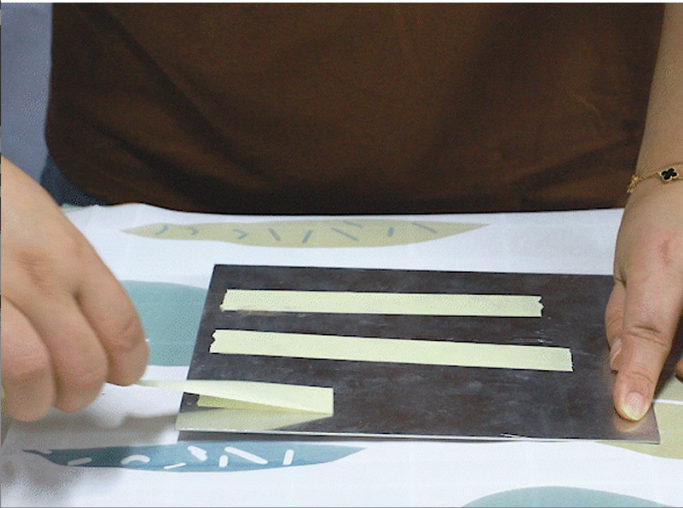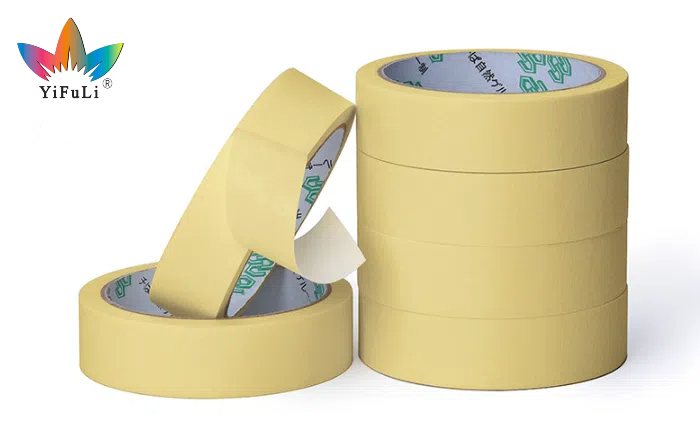![]() 20 April 2024
20 April 2024
Automotive masking tape or regular masking tape? When you approach automotive painting on a professional level, automotive masking tape is the only solution that guarantees the quality level required by customers, as far as precision, cleanness, speed and convenience are concerned. In this article, we deepen the differences between automotive masking tape and regular masking tape, showing how the first one is the best for your business.
The biggest difference between automotive masking tape and regular masking tape lies in the ability to withstand high temperature. In professional automotive painting, drying the vehicles in spray booths – or using an infrared lamp – at high temperature is an essential step of the procedure. The adhesive used in regular masking tape is simply not designed to resist high temperature exposure: as a result, the tape gets off the surface before the paint has dried, causing the paint itself bleeding on the surface to protect.
Auto body masking tape, on the other hand, is engineered with a special adhesive that keeps its hold when exposed at high temperature. The tape doesn’t get off before the paint dries, leaving clean surfaces and clean edges at the end of the job. 

Automotive masking tape vs regular masking tape: technical features
Beyond high temperature resistance, which remains the most important difference between auto body masking tape and regular masking tape, the two also feature other minor differences as far as technical values are taken into account.
Let’s take a look at the technical specs of automotive masking tape vs economic masking tape:
| CHARACTERISTICS | REGULAR MASKING TAPE* | AUTOMOTIVE MASKING TAPE** |
| Total Weight | 77 g/m2 | 92 g/m2 |
| Total Thickness | 105 µm | 125 µm |
| MD tensile strength | > 33 N/cm | > 38 N/cm |
| MD elongation at break | > 7% | > 7% |
| Adhesion to steel plate | > 1.8 N/cm | > 2.3 N/cm |
Higher thickness, which provides a stronger resistance to mechanical stress. The value shouldn’t be too high, though: 125 µm is an excellent compromise between the resistance required by automotive masking and affordable price.
As it is clear from the values, automotive masking tape differs from a regular masking tape with reference to:
- Higher tensile strength and elongation: regular masking tape is made to be applied to walls and doors. Automotive masking tape should provide higher conformability as it has to follow the curves and irregular surfaces of cars and other vehicles, without ripping or breaking.
- Adhesion power is higher too, to provide a better hold on different materials and resistance to critical temperature.

Our automotive masking tapes
Auto body masking tapes
All these elements sum up to guarantee a swift and quick job, clean results and, ultimately, time savings and work optimization.
Will masking tape damage car paint?
Let’s go straight to the point: you have to avoid using regular masking tape to be sure to keep your paint safe. Automotive masking tapes, instead, will not damage the paint.
Traditional tapes are difficult to remove and may leave unattended residues, while automotive masking tape is safe for car paint. Even if it has a better grip than regular masking tapes, it will neither leave adhesive residues, nor affect the quality of the painting.
We would never let our tape ruin your amazing work: you can leave the tape on as long as you need, until you complete your tasks, and forget about the fear of accidentally removing paint and starting all over again.
Moreover, this type of tape is resistant to high temperatures, so you can be totally sure it won’t come off during the drying cycles of the paint.
